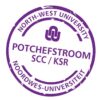-
 play_arrow
play_arrow
PUKfm
-
 play_arrow
play_arrow
London Calling Podcast Yana Bolder
-
 play_arrow
play_arrow
Summer Festival Podcast Robot Heart
-
 play_arrow
play_arrow
Electronic Trends Podcast Aaron Mills
-
 play_arrow
play_arrow
New Year Eve Podcast Robot Heart
-
 play_arrow
play_arrow
Techno Podcast Robot Heart
-
 play_arrow
play_arrow
Flower Power Festival Podcast Robot Heart
-
 play_arrow
play_arrow
Tech House Podcast Robot Heart
-
 play_arrow
play_arrow
Winter Festival Podcast Robot Heart
Makgala Folotsi
@kgali_Lee
The last few weeks have not been easy. Between writing and preparing for exams, things have been hectic for students. Multiple sleepless nights, neglect of mental health and physical health, and an overconsumption of caffeine have again become a norm.
The fear of failure, coupled with the stigma surrounding mental health issues, often prevents students from seeking the support and resources they need. As a result, many students suffer in silence and try to grapple with feelings of inadequacy, self-doubt, and isolation. All of which can have a long-lasting impact on their academic career and overall well-being.
Several departments such as Student Counselling and Development (SCD) and the Centre for Teaching and Learning (CTL) can offer help. These departments offer a wide variety of help from peer mentors, academic advisors, tutors, and psychological services to career guidance and counselling.
SCD offers professional services by qualified staff. These services include psychological services, counselling, and social work. Their role is to offer a support structure for students.
Students Advocating Leadership and Transformation (SALT) exist under the SCD and offer further resources. According to the Chairperson of SALT, Keneilwe Makhura, a fourth-year Pharmacy student, SALT looks at mental health among the students, those struggling to find balance, and the first years struggling to transition from high school to university. SALT members receive training to be able to help with social issues like gender-based violence, HIV/AIDS, and mental health.
When asked what she would recommend to students on how to deal with having failed their semester test(s) or not passing the way they anticipated, Makhura said that failing is not the end of the world and that it is part of the process. She further added that there are numerous ways to reach the end of the line and to consult the lecturers and your classmates to find a way to improve. Makhura stated that students should take the acquired information, apply it and work hard because, at the end of the day, there will not be an effortless way to do it other than to sit down and study.
Mrs Karen van den Berg Pretorius, Senior Counselling Psychologist at the SCD, said it is important for students to work on their academic skills and encourages students to reach out to the CTL for academic support. She further said it is important for students to identify why they did not perform as anticipated. If it is the approach to academics, students can visit CTL or if they are not studying the course they want, they can go through psychometric evaluation for career guidance. Van den Berg Pretorius said that they encourage the students to utilise constructive coping mechanisms to deal with disappointments, to change and adjust the reasons that are hindering their performance and to reach out for emotional support if needed.
Van den Berg Pretorius also said that the SCD group sessions are tailored to help students cope with higher stress levels, creating a safe space for students to share concerns or experiences, and encouraging peer support between those with similar situations.
Student leaders host educational dialogues about some students’ struggles during assessment periods and how to cope with these struggles, such as Red Chair campaigns and peer helper events in residences.
Disappointment is a huge part of academic life. When asked for advice on how students should deal with failure, Makhura shared a quote that stuck with her, “Failure to plan is to plan to fail.” She further elaborated that students, especially first years, should plan out their day in a detailed manner to have order and be able to accomplish more.
With academic pressure and fear of failure increasing in this period – remember you are not alone.
For more information on the services provided or to contact the services mentioned, please use the following information:
Send a message to @NWUSALT on both Facebook and Instagram or email them at [email protected], and they will respond with additional information.
To book a session:
Emotional support: (Building E14) Counselling/therapy sessions/academic guidance:
08:00-13:00; 14:00-16:30.
Academic support: (Building F18)
Academic/qualification support and career guidance; academic.
Warning/terminations; and psychometric assessments.
Walk-in services: (Building F18)
Monday: 9:00 – 12:00.
Tuesday: 09:00 – 13:00 and 14:00 – 16:00. Wednesday: 09:00 – 13:00 and 14:30 – 16:00. Thursday: 9:00 – 13:00 and 14:00-16:00.
Website link
Written by: Wapad
Similar posts
Recent Comments
Chart
-
-
-
 play_arrow
play_arrow
I Had Some Help (feat. Morgan Wallen) Post Malone
-
-
-
 play_arrow
play_arrow
Not Like Us Kendrick Lamar
-
-
Top popular

VARSITY CUP TICKET RESELLERS AND BUYERS – MAY BE DENIED ACCESS

UNANSWERED AND UNSPOKEN: NWU’S SILENCE ON SUSPENSION OF SCC STUDENT LEADER

NWU EXPELS STUDENT LEADER AFTER INTERNAL FINDING OF SEXUAL MISCONDUCT

MARCHING FOR JUSTICE AND POLICE ACCOUNTABILITY: THE TRUTH BEHIND THE TMM LOFTS PROTEST

DEGENAAR PRAAT OOR DIE NA-SKOK VAN ‘N TRAGEDIE






Post comments (0)